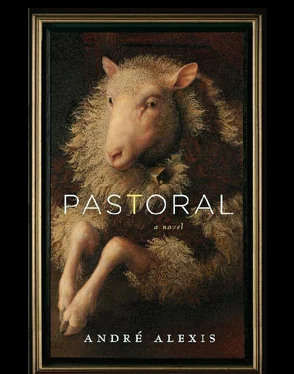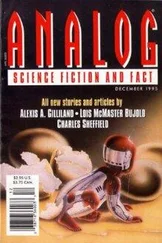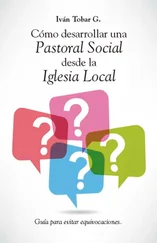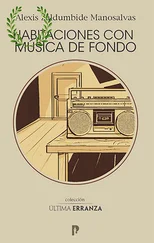Lowther had become ridiculous to himself. So, when weeks after his sixty-third birthday, his depression lifted, he was relieved. He began to see things in a more forgiving light. God had decided differently than he, Lowther, might have wished. Was that reason to behave like a spoiled child? Wasn’t it more sensible to treat the leftover life he had been given as a gift? He would be the first male in his line to see sixty-four, if he kept up his health. And he resolved to keep up his health, though he also kept an eye on the possibility that God would, in His own way, take him before he saw sixty-four. No tragedy, that. He had already been given more time than his father.
Of course, he had not planned for a long life. He had to think about how this unanticipated portion might best be led. Should he now spend the money he had spent years saving (and which he had promised to Father Pennant)? What would he spend it on? He was a man who desired nothing. He had travelled all over the world. He had eaten wonderful food. He had read all the books he considered necessary — from Aristotle’s Metaphysics to Zamyatin’s We — in preparation for an early (or, rather, timely) death. His cello was not the best. There were certainly more expensive, warmer instruments than his, but he loved this cello, these pieces of wood that he had touched and held, daily, for so many years. Needing no cello, no exotic food, no new books, he could not think what he would do with money. So, there was the first decision made for him: he would continue his frugal existence.
Would he continue his work at the parish? Heath had asked Lowther to consider working with him, and the idea was appealing. Working for Heath, he would not be bored. But Lowther had had all the excitement he needed from life. The simplicity and quiet of the rectory was more appealing. So, he would stay with Father Pennant. In fact, as he prepared to live out his last days (or months, or years), the only change of routine Lowther made was to take an hour in the evening to write music, a thing he had thought about doing for years.
On the day Father Pennant was accosted by the sheep, Lowther went to the Thames River with no purpose in mind. He sat on the grass by the bank of the river and watched the river run. The sun was warm, but not oppressive, after a rain. The ground was damp, but Lowther did not mind. He had a copy of the Barrow Topic , the town’s newspaper, under him. The clouds above were white. There was a slight breeze that, from time to time, brought a whiff of rotting fish. Somewhere further along, a catfish or a carp or even a pike must have died and washed up on the banks of the Thames. Growing wild along the riverbank: goldenrods, thistles, clover, chicory and, of course, grass: grass that was green, sparse where people walked, grass that made it look as if a hillock beside the river had a bad comb-over.
The most beautiful aspect of the afternoon was the river. No, not the river, which included both water and bank, but rather the water itself. The water was various tints of green, blue or bluish green, with silvery-white eddies where it moved around the stones and clumps of reeds close to the shore. The water was like the tail of a long animal — something living and entirely unconcerned with the life beyond its unpredictably twisting bed. As Lowther watched, he was reminded of Tomasine Humble. Lowther hadn’t liked her any more than most people had. She had been the very definition of miserable. But one summer afternoon, an afternoon much like this one, he had been out for a walk. It must have been a weekday, sometime before the end of school, because, at least in his memory, there had been no one else around. He had seen the old woman sitting alone, her back to the world, her feet in the water.
It was odd that his memory had taken so deep an impression of such an insignificant moment. Lowther experienced a rush of sympathy for the poor woman. It wasn’t easy not knowing when death would come. This ignorance now united them, though he was years younger than she had been on the day he’d seen her with her feet in the water.
Lowther took off his shoes and socks, walked to the side of the river, sat on a rock and allowed both of his feet to rest on a flat stone beneath the surface. His feet, as the clear water ran over them, were distorted, slightly distended, and looked as if they had been fixed to his ankles at an amusing angle. How wonderful life was!
He had been staring at the river for some time, moving his feet over the velvet grime of his underwater shelf, when the time came to return to the rectory to prepare an evening meal for Father Pennant. Lowther stood up, but too quickly. The blood rushed from his head and, disoriented, he stepped into the river where, landing barefoot onto a smooth stone, he slipped, falling over sideways, hitting his head on a rock, passing out and drowning in water not six inches deep. No final words, no last rites, no deep thoughts, no music. Just a quick incursion of darkness, a darkness that was itself like a river.
It would be difficult to exaggerate the sadness Father Pennant felt when he was asked to identify Lowther’s body in the morgue. He had been called not long after the body entered the morgue, so that, when the sheet was lifted to show Lowther’s face, Lowther’s hair was still damp. It had not been combed back. It clung to his forehead and right cheek. At his left temple, there was dried mud, and that was the most disturbing detail. It was so unlike Lowther to look dishevelled, as if he had been in a fight of some sort. His corpse looked almost exactly like him, but not quite. And Father Pennant felt as if this whole business were another of Lowther’s tests to see his reaction. It was hard to keep himself from gently slapping Lowther’s face and telling him, ‘Stop, now. That’s enough. This is disturbing, Lowther. Please get up.’
— Is everything all right, Father? asked the attendant.
— Yes, he answered. I’m fine. Thank you.
He walked out of the morgue, dazed.
There were two facets of Lowther’s death that Christopher Pennant found difficult to take in. First, there was the sheer fact of Lowther’s being gone. It was impossible for him to reconcile the fallen trunk of flesh with the living being it had once been. It was almost easier to believe that the man had gone to Europe, say, and left his body behind for when he returned. Of course, this was how he always felt about the dead. None of them stayed and yet it was as if none of them had gone. It wasn’t the finality of death that surprised him. It was the ghostly persistence of life. As if to say, it isn’t the dead who haunt the living; it’s the living who haunt the dead.
Even more difficult to encompass: Lowther had died, as he said he would, at the age of sixty-three. Father Pennant had not, until the very moment he looked down at Lowther’s grey face, believed him. The idea that God would kill on schedule was ludicrous. It was like those at Medjugorje who had regular appointments with the Virgin: not only absurd but petty, if true. One had to imagine the Lord keeping an eye on His datebook. But could you really call Lowther’s death accidental? It was a disturbingly precise accident, if so. Which was it then? Accident or divine intervention? In the days immediately following Lowther’s death, Father Pennant chose ‘accident’ and let it go at that. There was too much to do: a eulogy to write, Lowther’s things to dispose of or to put in order, arrangements to be made.
Hours after seeing Lowther’s body in the morgue, Father Pennant tried to write a eulogy for Lowther’s funeral. His first effort was filled with platitudes. Lowther had gone ‘to a better place,’ ‘God had called Lowther to Him,’ Lowther’s memory would be ‘evergreen’ for those who had known him. Reading his own words back, he felt as if he had betrayed someone. He rewrote everything. He wrote the eulogy three or four times, from ‘Please be seated’ to ‘Amen.’ He then rewrote it a few more times before it became clear that he had no idea what he thought about Lowther’s death. He had feelings, but they weren’t yet settled in him. Was it really good that God should call the ‘traveller’ home? Was death a better place, a reward that waited? Was it loving of God to have made us for death and, if so, why should God’s love need explaining? Was there any love worthy of the name that could be explained?
Читать дальше












